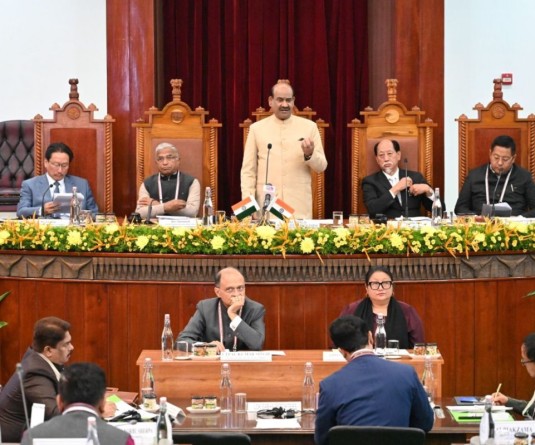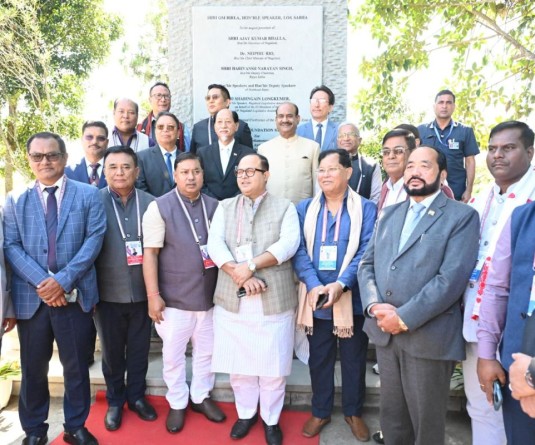
Our Correspondent
Kohima | July 22
A research team on “A research study on the quality in elementary school education with special reference to government policy interventions in Nagaland” has made recommendations that non-performing schools (Government schools) should be discouraged to exist.
This research study was conducted by State Council of Educational Research &Training (SCERT) Nagaland as part of “Year of Research 2017” and the same was released recently in Kohima.
The seven member research team headed by Dr. Zavise Rume, associate professor SCERT, based on the conclusion of the study stated that the poor schools unable to sustain academic standard should be allowed to cease.
“The State Academic Authority should be empowered to assess and supervise the academic standards of schools for recognition and de-recognition of the school and to determine the criteria of quality school. The schools which do not have competence to produce quality result must be allowed to gracefully close down,” the recommendation stated.
It also recommended that at the elementary school stage, every teacher should be trained to teach any subject for any class rather than appointing teachers for separate subjects.
Teachers who were trained through distance mode should be given intensive practical training on the methods and skills of teaching.
Teacher recruitment policy
It recommended that teachers should be recruited on merit basis. The state government should create a Nagaland State Education Service Commission for recruitment of all categories of educational personnel working in educational institutions and departments.
School supervision and monitoring
Regular school supervision should be done by inspecting authorities at different levels. Students should be ensured with regularity of teachers in the school. Bio Metric attendance for teachers should be introduced in the school. By law, the irregular, unpunctual and insincere teachers should be allowed to leave the school.
Teacher should implement the policy of Continuous and Comprehensive Evaluation (CCE). Regular unit test should form an integral part of teaching-learning process. Remedial classes should be given to the weaker students particularly the slow learners.
Every school either government or private schools should be assessed and accredited, it recommended.
Smart classroom
It also felt the need to implement smart classroom teaching with new technological gadgets like projector, computers etc. for teaching certain topics.
Appropriate Teacher-Student Ratio should be maintained. Sports’ equipments should be provided to the school. Every school should have proper physical infrastructure facilities like playground. Every school should be equipped with good library, science laboratory, computer labs.
State without clear cut goals for elementary education
Further results of the study indicated that the school administrators and education planners have conflicting ideas opinions about the meanings and concepts of quality education, the state did not have a clear-cut goals and aims of elementary education in the state. There was quality improvement of elementary schools in terms of infrastructure development as a result of several national flagship programmes and progress in professional development of teachers’ professional competency but that did not help the progress of academic performance of the students.
“There was a high level understanding among the school administrators about various policies and programmes on elementary education implemented in the state but the rate of students’ enrolment was going down considerably,” the research study report stated.
About the research study
This research study was undertaken with the primary objective to describe the operational meaning and concept of quality in general and quality of elementary education in particular; to assess the government policies and programmes implemented in Nagaland for quality improvement in elementary school education; to find out the quality indicators of school education in Nagaland; to suggest remedial measures for improvement of academic quality in school education.
The study covered the whole of Nagaland, covering 11 (eleven) districts of Nagaland. 60% of the numbers of the existing Government Middle Schools were selected as samples for the study to represent the population. 231 Government Middle Schools were covered under the study where 192 schools represented the urban areas and 39 schools represented the rural areas. There were total 231 Head Teachers of Elementary schools as respondents where 180 (78%) were males and 51 respondents (22%) were females. The data also collected inputs from 24 SDEOs in 11 districts of Nagaland, officials from Directorate of School Education, Nagaland, SSA, Nagaland and SCERT, Nagaland.






